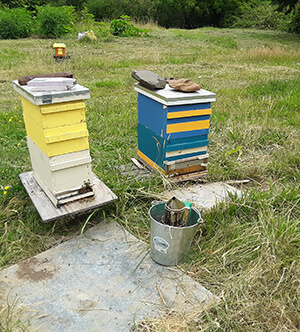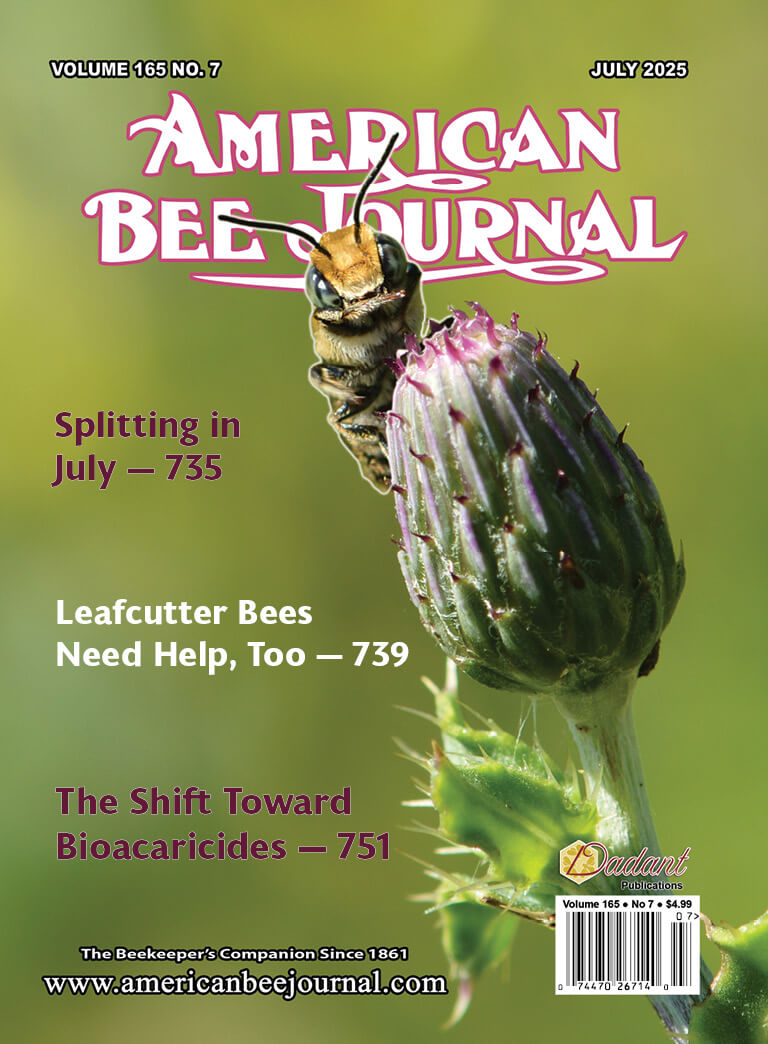
Do you recall your first beginnings as a beekeeper? As we wind down the 2021 active bee season in much of the U.S. and complete fall activities, we have more of an opportunity to reflect on how and what we learned in beekeeping. The fall months are especially challenging with mites. Did your mentor, assuming you might have had one, help impart good mite knowledge?
I have been and continue to be active in Master beekeeping programs. The Oregon Master Beekeeper program was started in 2011-12 to help assist new and more established beekeepers with their bee stewardship. Dr Ramesh Sagili suggested an Oregon MB program as part of the Cooperative Extension outreach from the Oregon State University Bee Lab. The Oregon program uses the model of assigning mentors to starting individuals and is one of 20 +/- state and regional programs that use mentors to assist beekeepers.
Some Master beekeeper programs are an outreach effort for beekeeping organizations (Washington State and Colorado for example), while others are educational efforts as extension outreach (Georgia and Florida for example). Most programs include considerable beekeeper input. In Oregon, Cooperative Extension and beekeepers co-administer the program. Commercial, sideline and backyard beekeepers were initially brought together to form an organizing committee, along with a couple of individuals, myself included, involved in teaching/outreach with bees.
Many beekeeping organizations have short courses to reach out to individuals interested in starting or who are just starting bee colonies. These are often classroom meetings (many now virtual), sometimes including a bee day or in-hive event. Virtually all Master beekeeping programs, unless merely a certification program (such as the Eastern Apicultural Society program), challenge development of beekeeper expertise with progressive levels of knowledge, leading to Master Beekeeper or Master Craftsman certification. Most build into the program in-hive instruction opportunities.
OR Master Beekeeper Program
As an example of how mentoring can be incorporated into such programs, I offer the example of the OR Master Beekeeper program. (Full disclosure: I was a member of the founding committee, and serve on the current beekeeping advisory committee, for the OR Master Beekeeper program. See Journal of Extension report at https://archives.joe.org/joe/2015june/iw6.php.) The Oregon program has three levels of certification — Apprentice, Journey and Masters. Each level progressively provides opportunities and support for additional learning. Course instruction and guided self-study, plus beekeeping practice in the field, are components of each level. Learning via helping other beekeepers is included as program individuals earn service points through community service. Complete information on the program requirements of each level can be found on the website https://extension.oregonstate.edu/mb. If you are not sure if your state has a Master Beekeeper program check your state association website.
Individuals start their journey by working toward certification as an Apprentice. This level is designed to give those just starting in beekeeping solid information and support. One goal is to help flatten the learning curve and increase the likelihood of retention of new beekeepers. Some of that is through developing confidence in new beekeepers regarding their ability to keep bees. The program lays out all that is involved in keeping bees and counts as a success an individual who decides not to keep bees after getting initial instruction. Recognition that bees take considerable care may help individuals recognize they lack time and/or necessary commitment to start beekeeping.
The Apprentice program originally included classroom instruction for students totaling 16 hours of beekeeping basics with different instructors. In-person classes were arranged across Oregon. Some of the sessions included instruction in actual bee colonies, depending upon location. Training PowerPoints were prepared for instructors to use as a means of providing similar materials to students in the various locations.
With funding from two state specialty crop grants, we began to prepare an online 6-lecture series of the materials spread over a 6-month time period. Several sessions were completed just at the beginning of the pandemic. Timing of this effort was fortunate as the individual instruction sessions subsequently needed to be halted with the virus pandemic.
Mentors in beekeeping
Matching an Apprentice student with a mentor makes the Oregon Master Beekeeper program unique. Since its inception, the program’s goal has been to provide beginners with mentors. Mentors are individuals that have had bees for a minimum of three years and are willing to assist others. Many are teaching the courses/giving the programs in their individual clubs and were, and continue to be, mentors.
Mentors in the Apprentice program are asked to meet with each mentee a minimum of 4 times, once each bee season. A worksheet is competed that covers the basics, information appropriate for each season. These meetings usually are in the mentee’s bees, although initial sessions may be in the mentor’s own bee yard. The best mentoring is not to manipulate the mentee’s bees but to offer advice and suggestions to the mentee while he/she is doing the actual inspection. This is often a fine distinction as mentors are comfortable doing the inspection and mentees may welcome the mentor doing the actual hive inspection. When mentees are invited to the mentor’s apiary, the tables are turned and the mentee becomes the observer while the mentor accomplishes apiary tasks, explaining the why and showing the how.
With growth of the program, the need for qualified mentors is ongoing; at least 100 are needed all over the state. To seek standardization and help identify new mentors, a Mentor Training Course has been developed based on a Master student’s outreach project. Effective for the 2022 Apprentice class, the course is mandatory for those new to mentoring in the program. The training course works to provide a consistent, standardized training program so mentors can provide students with a consistent and predictable mentoring experience. All mentors should be certified as Apprentice or Journey level beekeepers.
Additionally, due to demand from individuals interested in learning about beekeeping, the committee needed to revisit the Apprentice level. To meet our quality standard. we revised the program to create two Apprentice levels. A Getting Started level was initiated that did not involve a mentor; the standard Apprentice level continued in which each student was assigned a mentor. Also, we added an opportunity for more experienced individuals, with minimum 5 years of beekeeping, to enter the Journey level directly.
The issues we felt necessitated a change were mainly twofold:
- Individuals, while interested in beekeeping, were unsure they wanted to become beekeepers. They had an interest in learning about the basics of keeping bees as a means to help in their decision whether to keep bees or not.
- We quickly found obtaining volunteer mentors was a ….


